“Health literacy is a matter of trust, and trust is most strongly built in the context of community and personal relationships and relatable narratives.”

We all get into social impact because we dream about creating a change in the world around us, right? And yet, thinking of the incredible complexity of setting this change in motion can sometimes seem too daunting and freeze us in our tracks. While it may be intimidating to think of changing these large and complex systems alone, we can radically flip this conversation around by thinking beyond ourselves, and instead, think of contributing through diverse communities of action.
Speaking of complex systems, we can look at the realm of public health as a perfect example of one that is, right now, crying out for change. For most of us, our personal health is one of the most complicated and perplexing topics we tackle in our daily lives. This confusion is a challenge that transcends age, gender, geography, and income. And even after figuring out what we need to do to manage our health, being able to actually do so and access health solutions is another hurdle. Across the Philippines, there is an average of only 3.9 doctors working in health institutions for every 10,000 people. In addition to that, 8 out of 10 Filipinos report never having had a medical check-up or physical examination in their life.
We clearly face challenges not only in health literacy but also in making sure people have opportunities to access health solutions and build health-seeking behaviours. In this pandemic, it can cost us lives and millions of pesos for our healthcare system. How can we help our fellow citizens navigate through this and maximize their ability to take care of their personal health? How can we help flip the situation around on something so complex and massive?

At makesense we put our belief in the power of diverse communities of action. In September 2020, we started a health coalition in the Philippines under the name ‘Health4All’, with the support of Sanofi. We gathered a whole range of actors, from NGOs, social startups, community leaders, medical specialists, youth groups, researchers, and more. By getting these leaders who represent communities of women, youth, and the urban poor to share their expertise on the needs and challenges of citizens while synergizing with the expertise of medical specialists and health leaders, our goal was to take holistic action to help local communities manage their health.
“We must respect that and avoid furthering the disparity that occurs when dismissing people’s opinions on account of them not being medical experts.”
Dr. Parawan, Save the Children
Through a series of makesense facilitated workshops, we were able to learn from each other, pool our networks and resources, and eventually drive towards action on our shared ideals. In the span of 3 months, and with the commitment of the coalition members, we were able to go from meeting for the first time, to actually designing and planning collaborative solutions to enable youth leaders and young medical professionals in driving behavioral change in health within communities.
Here are three points the coalition members aligned on when it came to community and collaboration: the first is that everyone has a role to play in addressing complex challenges, whether you’re an individual, from a small or large organization, young or old, a medical specialist or community leader, and so on. Representing UNDP Sustainable Development Solutions Network Youth, Rianna says, “Because the effects are so far-reaching, we can’t afford to address health concerns by acting and seeing things in a vacuum.”
The second is that health solutions and interventions are sustained best when they are community-led and co-designed with the community. “We have to look at community members and leaders as having their own form of expertise,” says Dr. Parawan of Save the Children. “Their specific knowledge of their unique personal context is valuable. We must respect that and avoid furthering the disparity that occurs when dismissing people’s opinions on account of them not being medical experts.”
Lastly, it’s that health literacy is a matter of trust, and trust is most strongly built in the context of community and personal relationships and relatable narratives. Collaboration and community action is how we can climb out of this predicament.
In two of our other Makesense hubs in West Africa and Paris, we’ve created and maintained coalitions to drive long-term change on themes such as health and food security. We believe that thematic coalitions and diverse communities taking action towards a common goal can persistently nudge these complex systems to change. As we head closer and closer towards 2030, we look to multiply that nudge ten times more into a formidable push that creates the systemic change we hope to see.
By early 2021, we’re looking to open up and build this movement with the public. We believe in the unique ability of the youth and young medical professionals in sparking change in these times. Through the Health4All coalition, we’re designing an opportunity that empowers citizens to support local communities towards better health. As the saying goes, “If you want to go fast, go alone. If you want to go far, go together.”
Visit the Health4All website and subscribe to our newsletter for the latest updates.
Read also
-
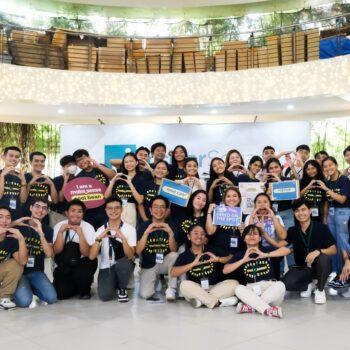 RISE For Youth Wins Award for Tackling Unemployment Among Filipino Youth
RISE For Youth Wins Award for Tackling Unemployment Among Filipino Youth -
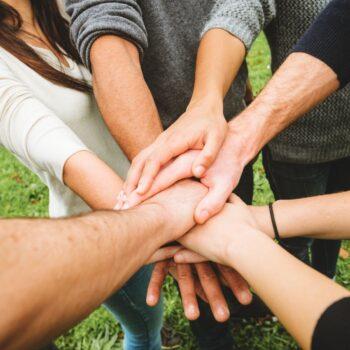 How Three Young Volunteers Help Their Generation Paint a Brighter Future
How Three Young Volunteers Help Their Generation Paint a Brighter Future -
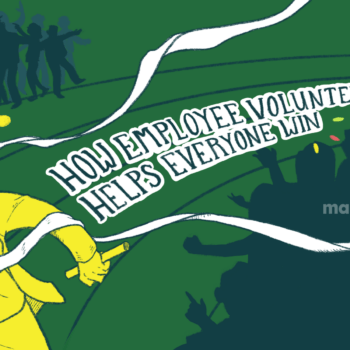 How Employee Volunteering Helps Everyone Win
How Employee Volunteering Helps Everyone Win -
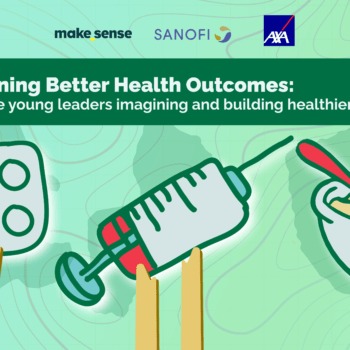 Imagining Better Health Outcomes: Meet the young leaders imagining and building healthier futures
Imagining Better Health Outcomes: Meet the young leaders imagining and building healthier futures -
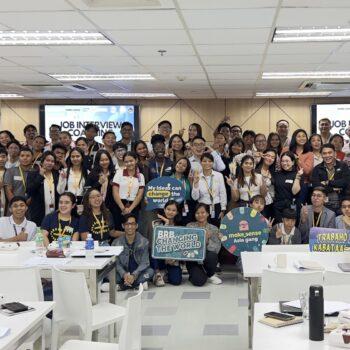 Designing CSR Programs That Actually Make a Difference
Designing CSR Programs That Actually Make a Difference
